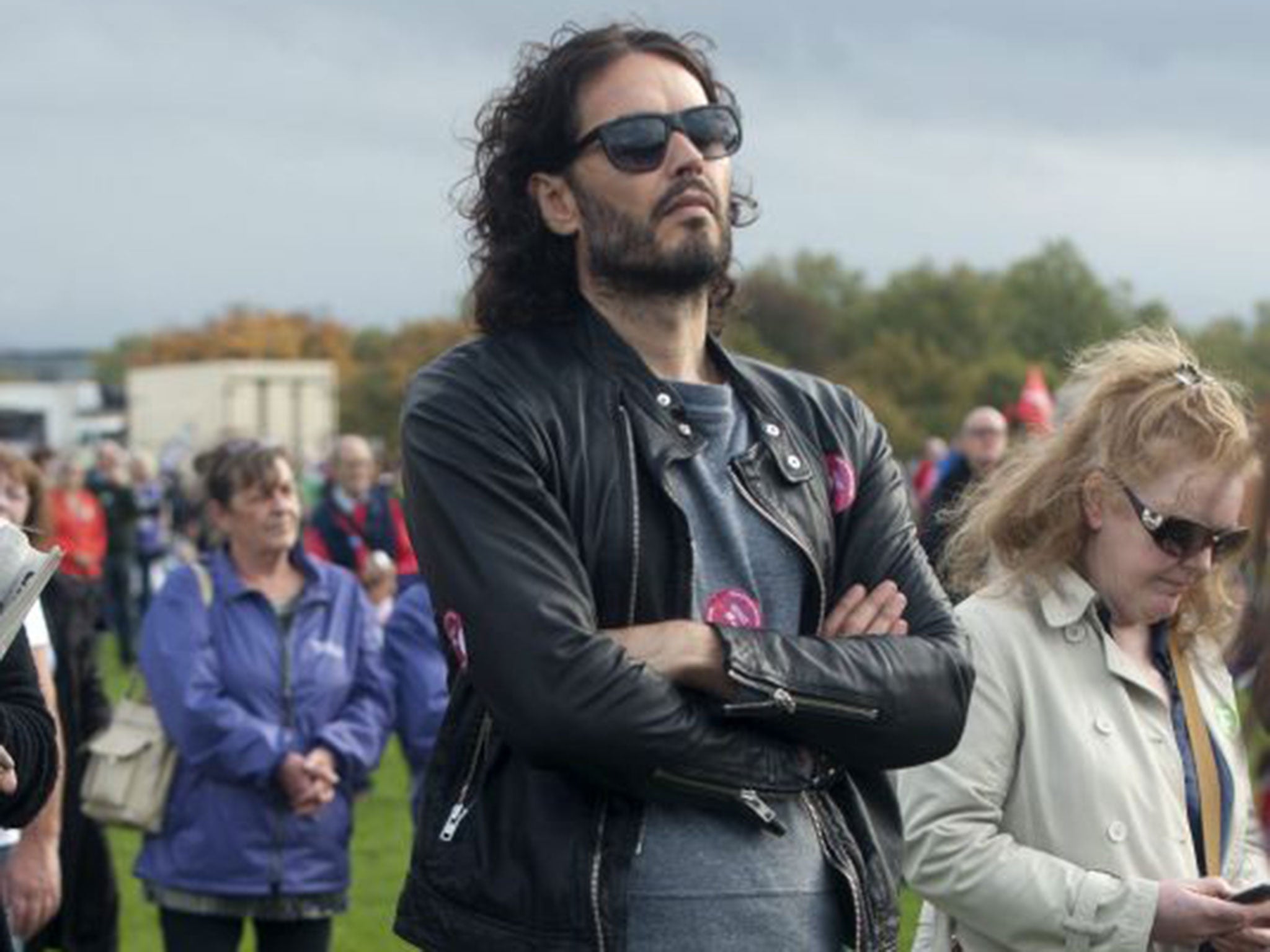Russell Brand talks a lot of sense — especially when it comes to our institutional addiction
Both the political system and the economy that it depends upon are trapped into patterns of uncontrollable self-harm

Russell Brand thinks the world can change because he has. His well-aired views on the futility of voting connect with this theme. Change comes from inside, he argues. To cast a vote is to engage with an external, artificial construct that operates within its own set of rules. If you don't accept the rules, than voting really cannot get you where you want to be.
Recently, provoked by criticism from John Lydon, Brand adjusted that view, but only slightly. Although piqued into observing that “if there was something worth voting for, I'd vote for it”, he introduced a crucial caveat, noting how global trade agreements increasingly prevent change happening at a national level. Voting for a national government, he is suggesting, is pointless if all the important decisions are taken elsewhere.
There is something in that: global agreements have progressively raised the bar that must be leapt over if change is to happen. TTIP is set to take it several notches higher still. A people-centred economy is a fine idea, but anyone trying to create one is confronted with a body of E.U. and international law that is, frankly, hooked on corporate interests. In the current paradigm, big business holds the keys to wealth creation, and governments should know their place and simply help them get on with it.
Brand knows all about being hooked. He is an advocate of The Twelve Steps of Alcoholics Anonymous, a path to sobriety that involves taking responsibility for the consequences of one's actions. Drinking is an individual act, even when it is out of control. An addict may feel trapped, but they know that escape from the trap is a personal journey. However much support or fellowship is available, it is essentially something that people must do for themselves.
When it comes to rampant consumerism, however, or an economy dependent upon easy credit and rising house prices, people may feel equally trapped, but they are less likely to acknowledge responsibility for a situation that they did not make, and is not of their choosing. The addiction in this case is not individual but institutional: Both the political system and the economy that it depends upon are trapped into patterns of uncontrollable self-harm, perpetuating a structural model that reinforces behaviours of waste, greed, inequality, deprivation and exploitation.
The addictive traits are unmistakeable: if you feel bad, keep taking the poison. In Britain, the government feeds the housing crisis not by seeking to reduce land values but by pouring money into the system to allow prices to rise. Across the world, corporate taxes are slashed and cheap money fed to banks, which encourages the speculation, profiteering and bulging asset prices that caused the economic meltdown in the first place. The system is blind to its weaknesses, incapable of the first and necessary step on the hard road to recovery, which is acknowledging that it is out of control. From this we can deduce that it has yet to hit rock bottom – that in the short term things can only get much worse.
Brand is right, therefore, in his central analogy, and his exhortation not to vote must be seen in this light. The main parties are stuck in an economic paradigm that drives GDP growth at the expense of human wellbeing. It favours financial transactions over productive activity and accords no value to the things that people care about most – the things they do for themselves, their families and each other because they wish to and choose to. It says that only an economy that transfers money systematically from the poor to the rich can create enough wealth to solve the problems of poverty. Voting for a party within that paradigm is like telling an unreformed addict to drink up and stop worrying. Rather than empowering people, it explicitly denies them opportunities to take control and solve problems for themselves.
The analogy with addiction, however, also points to a way forward. Addictions are tackled with small, manageable and measurable steps, the first of which involves acknowledging the scale of the problem. The second step in the 12 step programme requires belief in the restorative capacity of a “power greater than ourselves”. Originally associated, in the A.A. movement, with the Christian God, this power is now interpreted more broadly and may be found to live within the support of the group.
In economic terms, this “greater power” is the innate capacity of human beings to support one another through their relationships, irrespective of any money that changes hands. The way to invoke this power is to substitute human wellbeing for money value in the national accounts. By measuring GDP differently, incorporating the value of unpaid, voluntary, domestic and caring work and discounting the value of activity that merely circulates wealth, the power of the human will is harnessed to the task of redirecting the political and economic system away from its destructive path.
Martin Whitlock's book, Human Politics : Human Value was published last month. (www.mindhenge.co.uk)

Join our commenting forum
Join thought-provoking conversations, follow other Independent readers and see their replies